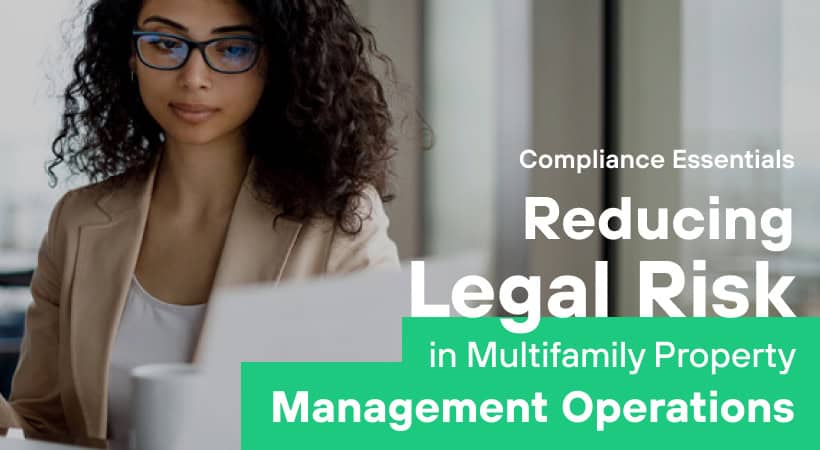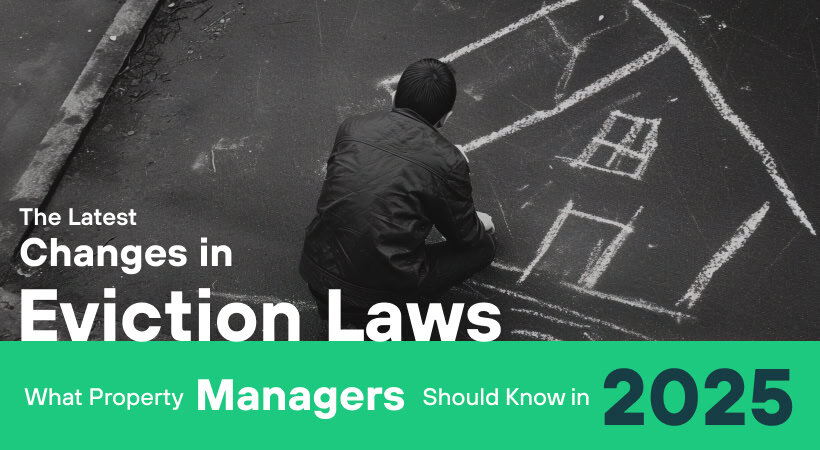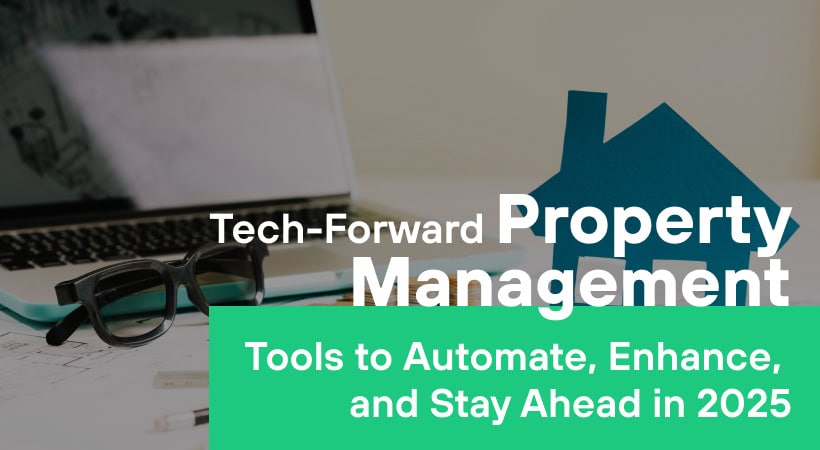Key Takeaways
Monitor updates to local, state, and federal housing laws regularly.
Document everything to ensure proper records during disputes.
Educate staff on Fair Housing and accessibility compliance.
Build strong relationships with legal counsel and housing authorities.
Audit your processes to ensure ongoing legal and operational compliance.
Property managers wear a lot of hats, leasing agent, maintenance coordinator, customer service expert, and more. But one of the most important roles we play is that of compliance officer, whether we realize it or not. The challenge? Rules and regulations governing rental housing are complex, constantly changing, and often hard to track.
Staying on top of compliance isn’t just good practice, it’s critical to protecting your property, your residents, and your reputation. From fair housing to local ordinances, failing to follow the rules can result in serious financial and legal consequences. The good news is, there are practical strategies to help you stay compliant and minimize risk.
The Compliance Challenge
Property management is governed by a web of federal, state, and local laws. And unlike some areas of the business, compliance is not optional.
A few key challenges:
- Frequent Changes: Laws change regularly, especially in areas like eviction moratoriums, rent control, and accessibility requirements.
- Jurisdictional Overlap: What’s legal in one city may be restricted in another. Local rules often add layers of complexity on top of state and federal regulations.
- Information Overload: Property managers are already stretched thin, and compliance often falls to the bottom of the to-do list, until it’s too late.
Build a Strong Compliance Foundation
The best way to stay out of legal trouble is to be proactive. That starts with setting up the right systems, tools, and professional support.
Create and Follow Standard Operating Procedures (SOPs)
Written procedures are your first line of defense. They help ensure consistency, reduce errors, and support compliance across your team.
Some critical areas to document:
- How leasing applications are processed.
- How and when notices are given.
- The eviction process (including documentation and timing).
- Fair housing complaint handling.
- Maintenance request and unit inspection protocols.
Make SOP reviews a regular part of your annual calendar, and update them anytime a law changes.
Don’t have SOPs yet? Join Multifamily Manager Pro and get instant access to all the SOPs you need to effectively and efficiently run your property management business.
Use Compliance Tools and Software
Technology can help take the guesswork out of compliance. Consider platforms that:
- Track changes in housing law.
- Manage fair housing documentation and training.
- Provide templates for notices and disclosures.
- Monitor lease expirations and legal deadlines.
Tools like Grace Hill, Yardi Compliance, or AppFolio’s legal notice tracking can be invaluable, especially when managing multiple properties or jurisdictions.
Train Your Team Regularly
Even the best procedures and tools won’t help if your team doesn’t understand the “why” behind compliance.
- Provide annual fair housing training, this should be non-negotiable.
- Use real-world scenarios to help team members navigate gray areas.
- Keep an open-door policy where team members feel comfortable asking questions or flagging concerns.
Remember, your vendors and contractors also represent your property. Make sure they understand the rules when working on-site.
Lean on the Experts
You don’t have to be a legal expert to stay compliant, but you do need to know when to ask for help.
Real Estate Attorneys
Having a trusted attorney on call can save you from costly mistakes. A good attorney can:
- Review your lease agreements and notices.
- Advise on tricky eviction or accommodation situations.
- Provide quarterly updates on new or pending regulations.
Even a one-hour consultation can be worth its weight in gold when navigating a sensitive issue.
Compliance Consultants and Industry Associations
Many apartment associations offer compliance updates, legal bulletins, and member support. These resources are often tailored to your region and include:
- Webinars and trainings.
- Sample forms and policy templates.
- Legislative updates.
Associations like the National Apartment Association (NAA) or your local housing authority are great starting points.
Government Resources
Bookmark important agencies like:
HUD for federal fair housing updates.
Your state’s housing department.
City and county ordinances and tenant protections.
Many offer newsletters or alerts you can subscribe to so you’re not caught off guard by policy shifts.
Common Legal Pitfalls to Watch For
Even well-meaning managers can make mistakes. Here are a few of the most common missteps:
- Mishandling reasonable accommodation requests.
- Charging inappropriate fees or deposit amounts.
- Failing to provide proper entry notices or rent increase timelines.
- Retaliation claims from residents after complaints.
- Incomplete or missing documentation in lease violations or evictions.
These aren’t just technicalities, they’re areas where lawsuits often begin.
Make Compliance Part of Your Culture
Ultimately, compliance isn’t just a checklist, it’s a mindset. You want every team member to understand that following the rules protects the business, the residents, and their own peace of mind.
Encourage ongoing learning, provide easy access to policies and legal resources, and make sure documentation is second nature.
Reward team members who are thorough, careful, and ask smart questions. That attention to detail is what keeps problems from escalating.
Final Thoughts
Staying compliant in property management isn’t always easy, but it is absolutely essential. With the right processes, tools, and professional partnerships, you can manage the risk and operate with confidence.
By investing in education, clear procedures, and legal support, you’re not only protecting your assets, you’re also building trust with your residents and your team. And in today’s litigious environment, that trust is one of the most valuable assets you can have.











